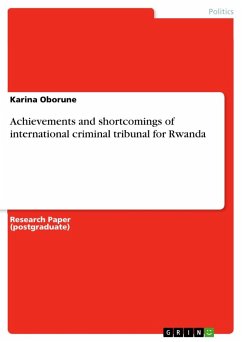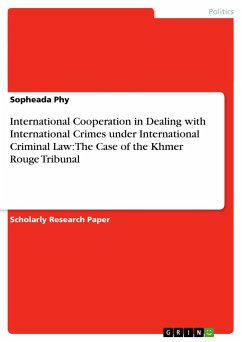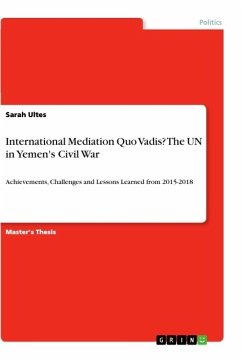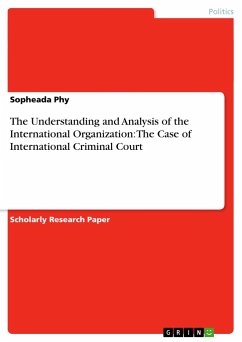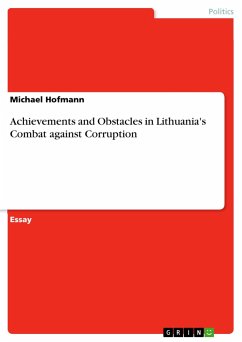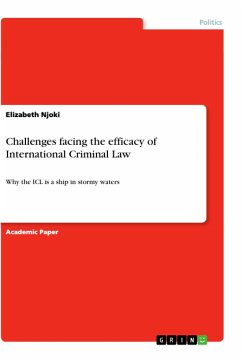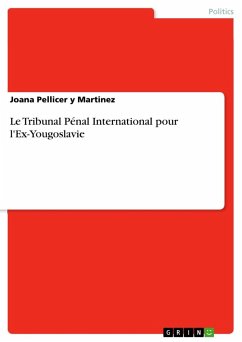Research Paper (postgraduate) from the year 2009 in the subject Politics - Topic: Peace and Conflict, Security, grade: A-, University of Basel (Europainstitut), course: Friedensförderungsseminar, language: English, abstract: ABSTRACTAim of paperThis paper deals with the effectiveness and achievements of ICTR that can be viewed in light of aims set out in the UN Resolution 955, 1994. In the Resolution UN is determined to: 1) have effective application and enforcement of restrictions against the warfare perpetrators; 2) bring justice and ensure that violations are halted; 3) have fair trials; 4) contribute to criminal justice and process of reconciliation and restoration and maintenance of peace.HypothesesIn the present paper author put forward two hypotheses. The first hypothesis is that creation of ICTR was a logical, but moderate step, which would have not been necessary if global society would have appropriately reacted to previous warnings about possible genocide in Rwanda. The second hypothesis is that ICTR was merely a vehicle of justice, but it is hardly designed as a vehicle for reconciliation.Analytical frameworkAuthor has discussed the work of ICTR and refer to particular aims, possibility of their achievement and assess outcomes. Author used three tools of analytical framework: legal, political and economical, as from these different standing points it is possible to assess the work of ICTR in its entirety. Legal aspects of work of ICTR extend from mere procedural points to ICTR's contribution to legal tradition and legal developments. Author depicted which of legal aspects have undermined the authority and image of ICTR, as well as could be deemed as actual shortcomings, and how these aspects influence achievement of justice as the ultimate goal of legal authority. Financial aspect shows the costs of ICTR, but political aspect deals with assessment of set goals in the Resolution and bringing justice as a prerogative, as it is expected to be effective and appropriate.Main conclusionsThe paper shows that while making a significant contribution to the law of genocide and international criminal justice and establishing historical record (achievements), ICTR was incapable in reconciliation of witnesses and survivors and was described as "job creation for foreigners" (shortcomings).
Hinweis: Dieser Artikel kann nur an eine deutsche Lieferadresse ausgeliefert werden.
Hinweis: Dieser Artikel kann nur an eine deutsche Lieferadresse ausgeliefert werden.

